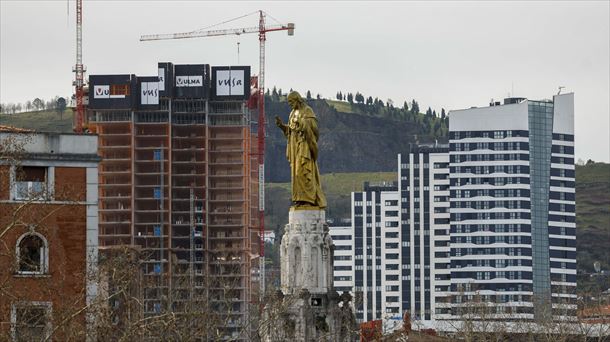They are the reaction of the exaggerated right, fed by the blood of the system itself, even when they act against it
Post-fascism is a term that is up for debate. It refers to the similarities with the fascist political culture of a century ago of some current formations that may or may not lay claim to that tradition. The tricolor flame of the logo of Giorgia Meloni’s Fratelli d’Italia is the same as that of the Italian social movement that he inherited from Mussolini after World War II; also that of the other tricolor of the French Front National or its continuity in the Marine Le Pen National Association. Post-fascism is not fascism because it occurs in a different time, but it refers to it because it recreates the answers that ideology would have manifested before the problems and challenges of the 21st century. It is a more precise and effective reference than calling everything we dislike fascist – which, moreover, overly devalues the seriousness of its semantics -, because it understands that those dangers need not be represented today by a young man with a bald head, military boots and a menacing character, just like a quiet retiree or a normal employee who votes for far-right options.
Next month will be the centenary of the Duce’s March to Rome, which facilitated his access to power after the invitation of the Italian monarch and the agreement of liberal, Catholic and nationalist parties. The current Italian Republic is based on democracy and anti-fascism and collects the unity of the different political cultures that met in the resistance against Mussolini. Militant democracy and the annual memorial of Liberation Day (April 25) have not prevented that memory from being a yellow sheet of paper today, something old-fashioned, irrelevant. The time has passed for fascism and also for anti-fascism. Hence the topicality of post-fascism, which is and is not. It’s not violent, but it spreads hatred. It is not racist, but defends exclusion based on origin. It is not against democracy, but proposes to renounce the values of the rule of law as the basis of the republic.
The problem is, if post-fascism doesn’t revive fascism, it’s the reaction of the exaggerated right, which is fed by the blood of the system itself, even though it works against it like autoimmune diseases: the immune system attacks good cells through them. to confuse; the political system devalues its bases and attacks what and those it should defend. He does not threaten to kidnap and kill another Matteotti, but he orders his troops in favor of the enemies of our social system, who question what we must protect: respect for the law, the balance of power, the defense of sectors weakest, diversity and pluralism or a political Europe. Post-fascism is therefore illiberal, as if it were anti-democratic, but secretly.
And so the question returns to its origins: as fascism once was, is this the conservative version in times of threat to some of its values (family, religion, homeland, social order, gender roles, welfare nativism…)? Because post-fascism does not intend to wipe out the state of affairs, but rather to substantially transform its organization by understanding that its adversary there – increasingly regarded as an enemy -, the generic and bloodless left, has stolen his wallet, hegemonic has imposed his view of the world. There is a democratic right that believes this is not the case, that contemporary values are much more transversal – and historically they are right: just look at the creation of the European Union – but there is another that increasingly shares elements of that apocalyptic vision, extreme, which leads the post-fascists to lead our states, first behind it, then in front of it, as it is now in Italy. Without their support, active or passive, no fascist of the 1920s or 1930s would have come to power; Today nothing else happens. That is why it is important to make clear who he is with.
Source: La Verdad
I am an experienced and passionate journalist with a strong track record in news website reporting. I specialize in technology coverage, breaking stories on the latest developments and trends from around the world. Working for Today Times Live has given me the opportunity to write thought-provoking pieces that have caught the attention of many readers.



